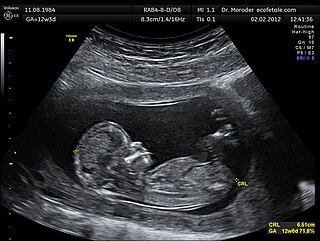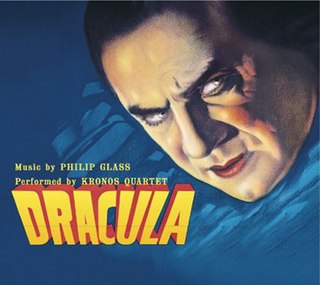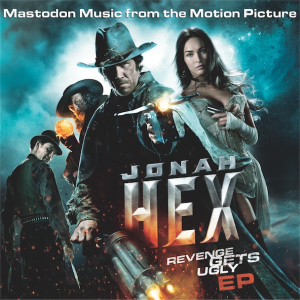
Ultrasound is sound waves with frequencies higher than the upper audible limit of human hearing. Ultrasound is not different from "normal" (audible) sound in its physical properties, except that humans cannot hear it. This limit varies from person to person and is approximately 20 kilohertz in healthy young adults. Ultrasound devices operate with frequencies from 20 kHz up to several gigahertz.
Post-rock is a form of experimental rock characterized by a focus on exploring textures and timbre over traditional rock song structures, chords, or riffs. Post-rock artists are often instrumental, typically combining rock instrumentation with electronics. The genre emerged within the indie and underground music scene of the 1980s and early 1990s. However, due to its abandonment of rock conventions, it often bears little resemblance musically to contemporary indie rock, borrowing instead from diverse sources including ambient, electronica, jazz, krautrock, dub, and minimalist classical.

A dog whistle is a type of whistle that emits sound in the ultrasonic range, which humans cannot hear but some other animals can, including dogs and domestic cats, and is used in their training. It was invented in 1876 by Francis Galton and is mentioned in his book Inquiries into Human Faculty and Its Development, in which he describes experiments to test the range of frequencies that could be heard by various animals, such as a house cat.
Brendan John Canty is an American musician, composer, producer and film maker, best known as the drummer for the band Fugazi.
Zoomusicology is the study of the musical aspects of sound and communication as produced and perceived by animals. It is a field of musicology and zoology, and is a type of zoosemiotics. Zoomusicology as a field dates to François-Bernard Mâche's 1983 book Music, Myth, and Nature, or the Dolphins of Arion, and has been developed more recently by scholars such as Dario Martinelli, David Rothenberg, Hollis Taylor, David Teie, and Emily Doolittle.

It's All Gone Pete Tong is a 2004 British-Canadian mockumentary-drama film about a DJ who goes completely deaf. The title uses a rhyming slang phrase used in Britain from the 1980s, referring to the BBC Radio 1 DJ Pete Tong.

Hearing range describes the range of frequencies that can be heard by humans or other animals, though it can also refer to the range of levels. The human range is commonly given as 20 to 20,000 Hz, although there is considerable variation between individuals, especially at high frequencies, and a gradual loss of sensitivity to higher frequencies with age is considered normal. Sensitivity also varies with frequency, as shown by equal-loudness contours. Routine investigation for hearing loss usually involves an audiogram which shows threshold levels relative to a normal.
Ultrasound is sound waves with frequencies higher than the upper audible limit of human hearing.
The hypersonic effect is a phenomenon reported in a controversial scientific study by Tsutomu Oohashi et al., which claims that, although humans cannot consciously hear ultrasound, the presence or absence of those frequencies has a measurable effect on their physiological and psychological reactions.
Bang Gang is a downtempo band from Iceland founded by songwriter and producer Barði Jóhannsson. The band was formed in 1996, in Barði’s hometown of Reykjavík. Bang Gang were initially a surf band but it moved into melodic pop.
David Van Tieghem is an American composer, percussionist and sound designer, best known for his philosophy of utilizing any available object as a percussion instrument and for his collaborations with the experimental artists Laurie Anderson, Brian Eno, Jerry Harrison and David Byrne.

Hearing, or auditory perception, is the ability to perceive sounds through an organ, such as an ear, by detecting vibrations as periodic changes in the pressure of a surrounding medium. The academic field concerned with hearing is auditory science.

Dracula is a soundtrack performed by the Kronos Quartet, with music composed by Philip Glass, for the 1931 film Dracula.

Jonah Hex: Revenge Gets Ugly EP is the official score for the 2010 film Jonah Hex directed by Jimmy Hayward and starring Josh Brolin. It was composed by American heavy metal band Mastodon and film composer Marco Beltrami. It was released digitally on June 29, 2010, through Reprise Records.
Synchromy is a 1971 National Film Board of Canada visual music film by Norman McLaren utilizing graphical sound. To produce the film's musical soundtrack, McLaren photographed rectangular cards with lines on them. He arranged these shapes in sequences on the analog optical sound track to produce notes and chords. He then reproduced the sequence of shapes, colorized, in the image portion of the film, so that audiences see the shapes that they are also hearing, as sound.

Sky Pirates is a 1986 Australian adventure film written and produced by John D. Lamond, and directed by Colin Eggleston. The film was inspired by Steven Spielberg's Raiders of the Lost Ark (1981), as well as borrowing liberally from The Philadelphia Experiment (1984), The Deer Hunter (1978), Dirty Harry (1971) and Mad Max (1979).

Soundtrack is a 2011 Indian Hindi-language drama film and an official remake of the Canadian independent film It's All Gone Pete Tong (2004). It was directed by newcomer Neerav Ghosh and stars Rajeev Khandelwal and Soha Ali Khan. The film received positive reviews from critics but was a flop at the box office.

Glen Campbell: I'll Be Me is a 2014 American documentary film about country music singer Glen Campbell. Campbell and close friend Julian Raymond won a Grammy Award and were nominated for the Academy Award for Best Original Song for writing the film's theme "I'm Not Gonna Miss You".

David Brent: Life on the Road is a 2016 British mockumentary comedy film written, directed, and produced by Ricky Gervais and released by Entertainment One. The film stars Gervais as David Brent, a character he played in the BBC television comedy series The Office, who has a film crew that shadows him as he travels up and down the country living his dream of being a rock star. Gervais said, "This film delves much more into his private life than The Office ever did and we really get to peel back the layers of this extraordinary, ordinary man." He has emphasised that it is "not an Office film".
"Miracles" is a song by British rock band Coldplay, which was written and recorded for the 2014 drama film Unbroken, directed by Angelina Jolie. The song was first unveiled on 11 December 2014, and released separately from the film's soundtrack album on 15 December 2014 through Parlophone and Atlantic Records.











